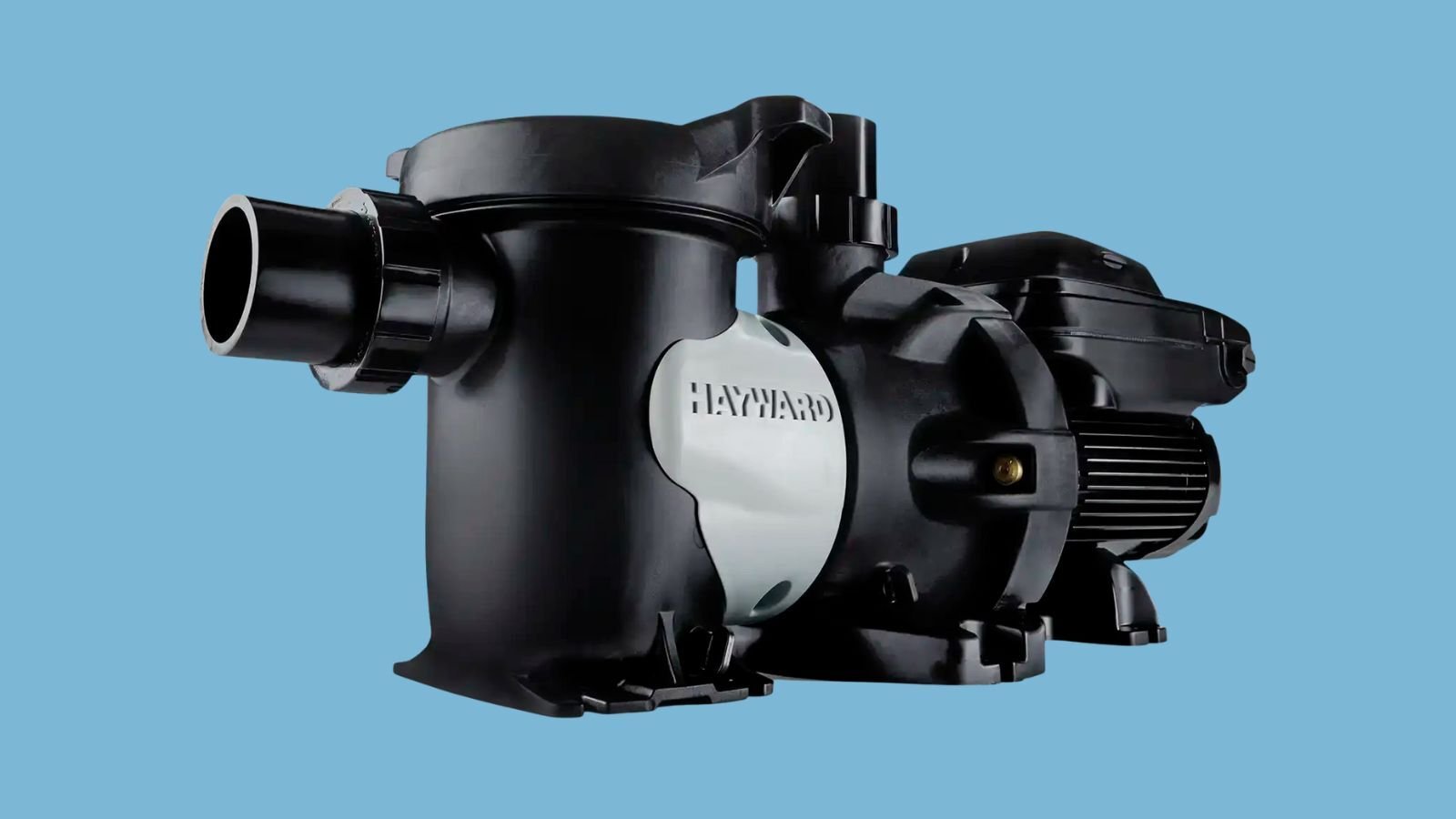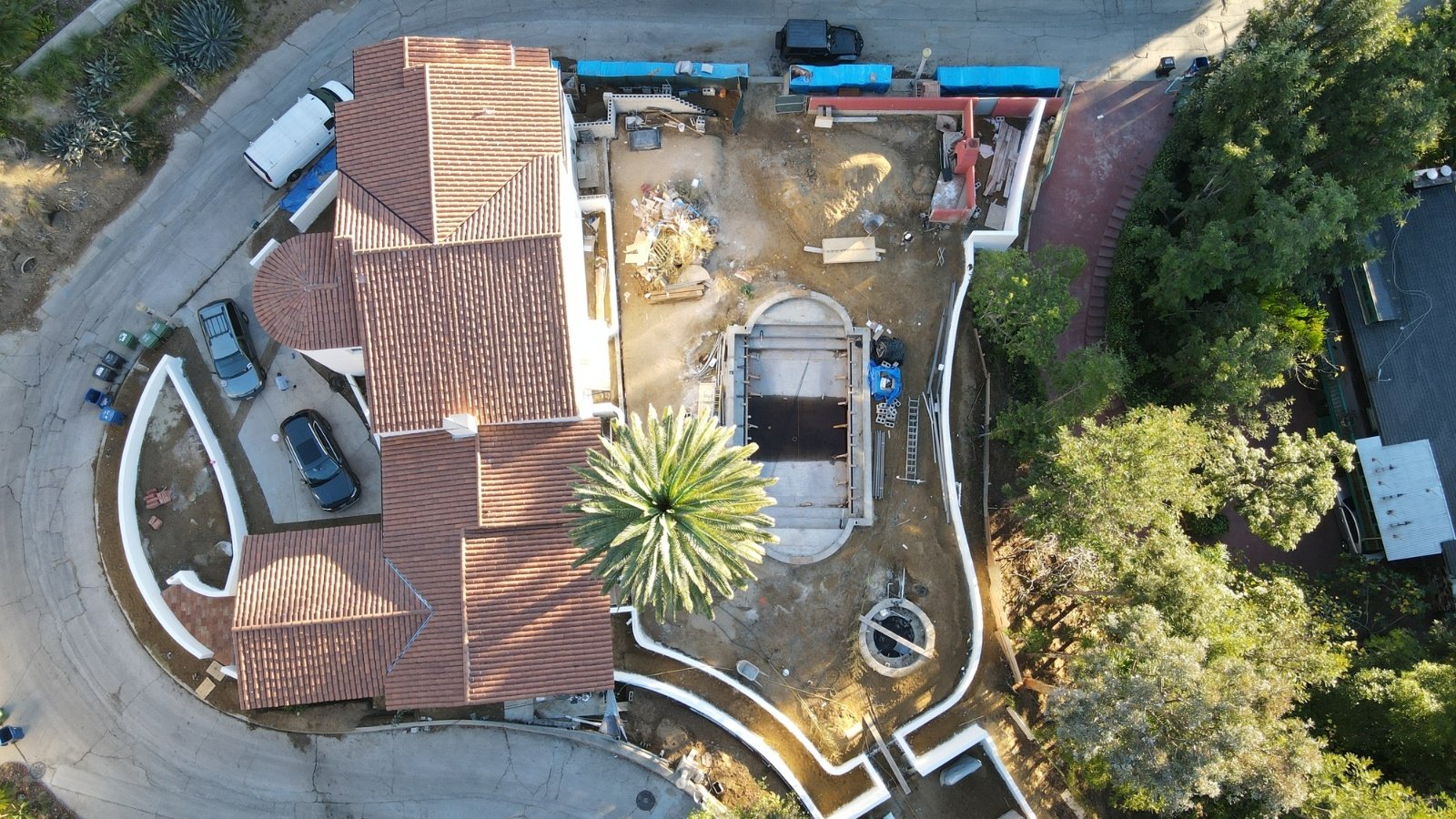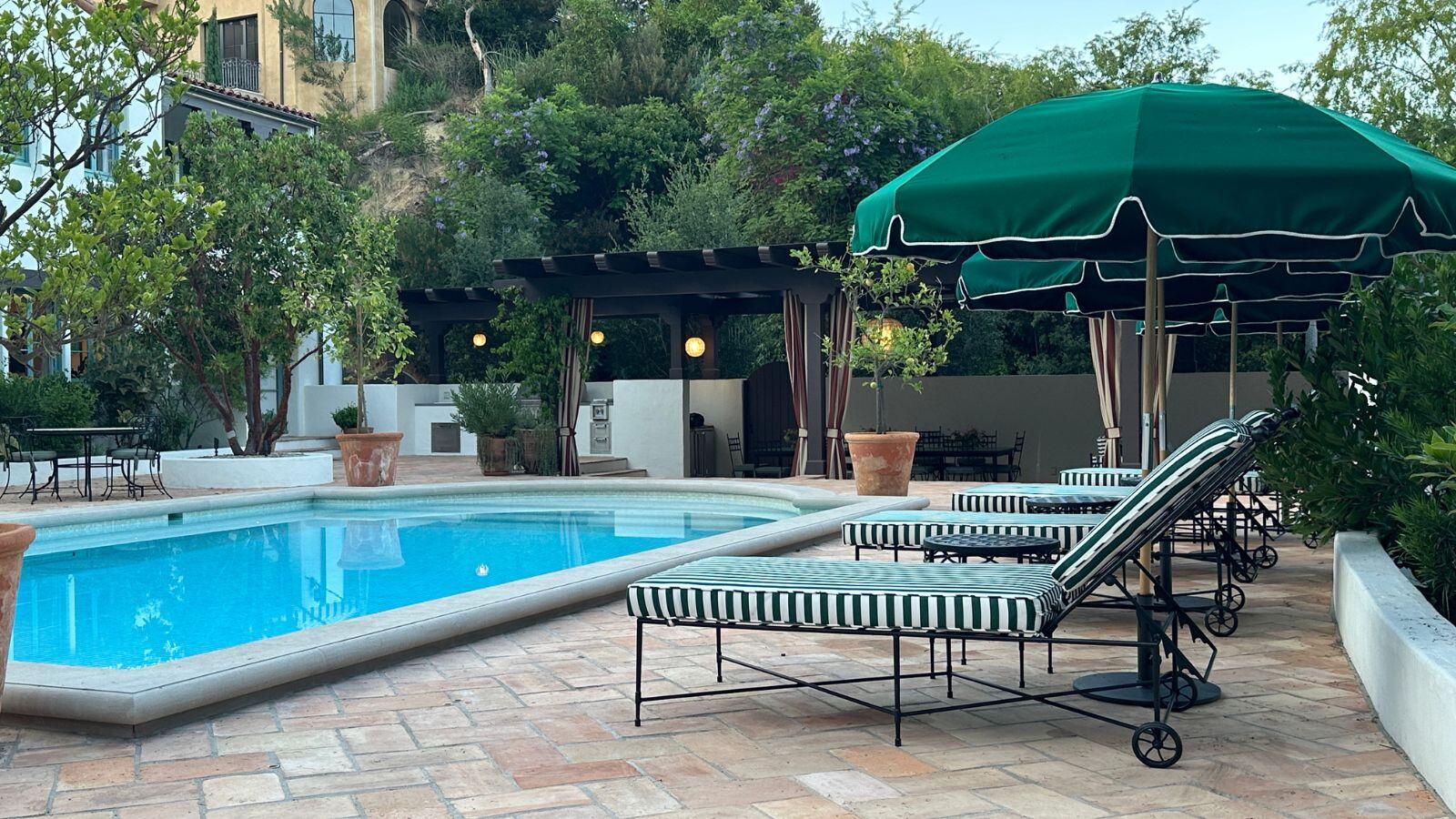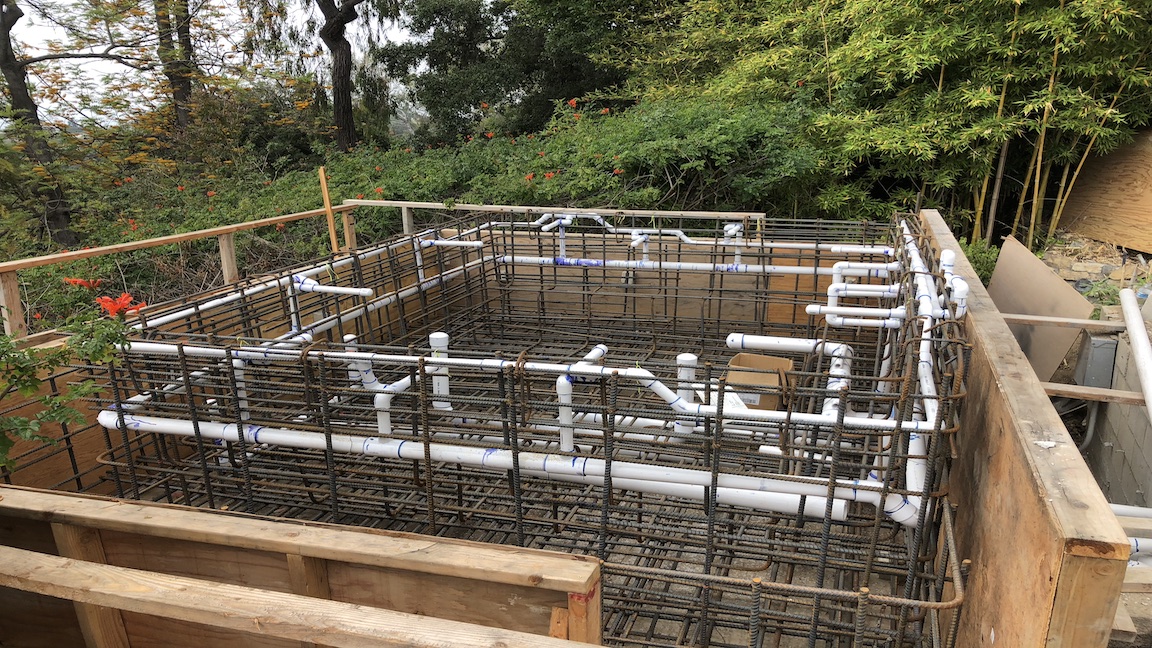When Luxury Pools Go Wrong: The Biggest Threats High-End Projects Face (And How to Avoid Them)
Building a luxury pool is a significant investment, one that should deliver both beauty and peace of mind. Yet, even the most impressive projects can...
4 min read
JC Escudero : Updated on August 6, 2025

Have you ever stepped outside expecting the calming sound of water, only to be greeted by a grinding, rattling, or screeching noise from your pool pump?
Is that noise just a harmless annoyance, or could it be a warning sign of something more serious?
In this article, you'll learn how to identify what’s causing the noise, understand the most common problems pool owners face, and get expert tips on how to fix or prevent them.
We’ll also explain how improper installation—such as undersized plumbing and elevation issues—can quietly compromise your pool system. Let’s dive in.
A noisy pool pump is never just background noise—it’s your equipment signaling that something’s off. Whether it's a low hum, a sharp screech, or a rattling thud, each sound points to a specific issue.
Each pump noise has a cause, and recognizing it helps you fix it faster.
Some common noise indicators:
Screeching or whining = Worn bearings
Grinding or rattling = Loose components or debris
Buzzing or humming = Motor strain or voltage issues
Unusual pump noise is usually your first warning sign. Ignoring it can lead to more expensive damage down the line.

Once you've narrowed down what the sound means, you can begin troubleshooting the source. The most frequent culprits include:
Worn Bearings: If your pump is screeching, the bearings are likely to be the cause. These can often be replaced individually, or you may need to install a new motor.
Blockages or Debris: A grinding or struggling noise usually means there’s an obstruction in the strainer basket, impeller, skimmer, or filter.
Air Leaks: Hissing or gurgling sounds often mean air is entering the system, usually through a loose pump lid or faulty o-ring.
Quick maintenance checklist:
Check and clean all baskets
Inspect the pump lid and o-rings for air leaks
Backwash or clean filters
Check for loose fittings or debris in the impeller

Many homeowners are surprised to learn that the size and layout of your pool plumbing can significantly affect pump performance and the noise it makes.
Undersized PVC pipes, often used to reduce construction costs, can restrict water flow and increase internal pressure. This restriction leads to cavitation, a condition in which the pump struggles to stay primed due to insufficient water intake, producing loud surging sounds and potentially damaging the motor.
But pipe diameter isn’t the only culprit—elevation differences between the pump and the pool can also cause issues. This particular scenario will also create priming difficulties and unnecessary wear.
When your pump is installed at a higher elevation than the pool—or the underground plumbing is unevenly leveled—it can create a siphoning effect.
Here’s what happens:
When the pump shuts off, gravity pulls water back down toward the pool.
This backflow causes the equipment pad to slowly drain, pulling air into the system
The next time the pump turns on, it struggles to prime, leading to loud operation and potential overheating
In both cases, the result is the same: your system is under unnecessary strain.
And making it worse:
Many installers ignore the Department of Energy (DE) and manufacturer flow guidelines
Dirty filters and low water levels create added resistance
Modern variable-speed pumps are susceptible to improper flow conditions
The lack of a check valve installed at the pump is preventing the slow drain..
Bottom line: Even the most advanced pump won’t run quietly if the plumbing is undersized or the layout ignores basic hydraulic principles.

If you’re mechanically inclined, replacing pump bearings can be a DIY project—but it requires skill, the right tools, and safety precautions.
What you’ll need:
Bearing puller
Lubricants
New OEM-approved bearings
Safety gloves and eye protection
Before attempting this, consider:
Will it void your warranty?
Would a new motor be more cost-effective?
Are you comfortable dismantling and reassembling pump components?
When in doubt, hire a pool technician you trust—they’ll ensure proper repair and protect your investment.

A smooth-running pump relies on unrestricted water flow. Even minor obstructions or air leaks can significantly impact noise levels.
Here’s what you can do:
Keep your pool’s water level high enough to avoid sucking air
Clean your skimmer and pump baskets regularly
Check for clogged filters or narrow return jets
Seal all fittings to prevent suction-side air leaks
A clean, balanced system is a quiet system. Routine checks are the most effective way to prevent costly repairs or replacements.
Prevention is always easier (and cheaper) than repair. Regular maintenance ensures your pump stays quiet and performs efficiently over time.
What to inspect and replace regularly:
O-rings and gaskets
Seals and unions
Filter cartridges or sand
Motor ventilation and wiring
Keep a maintenance calendar or work with a professional and licensed service provider to schedule quarterly check-ups.
A silent pool pump isn’t luck—it’s the result of consistent, respectful care.

While many pool owners (and even some installers) focus only on electrical setup, the hydraulic recommendations provided by pump manufacturers are just as important—if not more so—when it comes to performance and noise reduction.
Every pool pump comes with specific requirements for plumbing size, system pressure, elevation, and flow rate. Ignoring these can void warranties, reduce efficiency, and lead to excess noise and premature failure.
Common guidelines include:
Minimum pipe diameter (often 2" or more) to maintain proper flow
Maximum suction lift height, especially when pumps are installed above pool level
Correct flow rates to prevent cavitation or motor overheating
Proper valve placement to ensure balanced backpressure and safe priming
Unfortunately, when these specs are ignored—either to save money or due to inexperience—the pump ends up doing more work than it should. This often results in:
Loud screeching or grinding sounds
Struggles to prime on startup
Increased wear on seals, bearings, and impellers
Following manufacturer instructions isn't optional—it’s essential to a quiet, long-lasting pool system.
A noisy pump is more than a nuisance—it’s your pool’s way of asking for attention.
You’ve now learned how to:
Decode common pump sounds
Diagnose and fix frequent issues
Prevent future noise with smart plumbing and regular maintenance
Your next step?
Verify that your pool system was installed with the correct plumbing specifications, and consider hiring a professional noise audit.
Since 2008, we have assisted swimming pool owners in installing and offering energy-saving solutions. Our expertise lies in quiet, energy-efficient pool systems built for durable performance. Let us help restore tranquility to your poolside.
👉 Want help diagnosing your noisy pool pump?
Schedule a professional inspection here.
👉 Thinking about upgrading your pump?
“Best Variable-Speed Pool Pumps for Quiet Operation”

Building a luxury pool is a significant investment, one that should deliver both beauty and peace of mind. Yet, even the most impressive projects can...

For more than twenty years, J Designs has partnered with discerning homeowners to create exceptional pools and luxury outdoor environments. Again and...

You wouldn’t power a modern luxury car with a 1980s engine. It might run, but not well. It would guzzle fuel, struggle under load, and eventually...